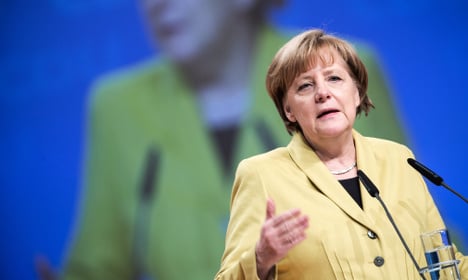Merkel told ZDF public television that the package approved last week by the Greek parliament and eurozone finance ministers for a third bailout would help Greece “get back on its feet”.
“It doesn't help if we are all nice to each other and in three or four years everything is worse than it already is today,” she said.
Merkel said Greece's leftist government had changed its approach “thanks to the tough stance of many countries but also (German finance minister) Wolfgang Schaeuble and the German government”.
Athens now “sees that the country can only get back on its feet if it really reforms”.
She said eurozone partners would now be watching to see “whether the intensity of this work continues”, saying that further Greek measures were necessary “if we want to see the light at the end of the tunnel”.
As Europe's biggest economy and contributor to Greek aid, Germany plays a key role in the emergency package approved by eurozone finance ministers worth up to 86 billion euros ($96 billion).
Berlin has been the strongest proponent of a policy insisting on pro-market reforms in exchange for any bailout.
MPs from the Bundestag lower house of parliament will be called back from the summer recess to vote on the rescue package on Wednesday.
Analysts say approval is almost certain, given that Merkel's governing coalition of conservatives and Social Democrats holds 504 of the 631 seats in the assembly.
The main interest is in the scale of any revolt by deputies in Merkel’s conservative bloc, they say.
Merkel declined to “speculate” about how many of conservative deputies might jump ship and vote against the bailout but said she would work to convince MPs of her government's position before the vote.




 Please whitelist us to continue reading.
Please whitelist us to continue reading.